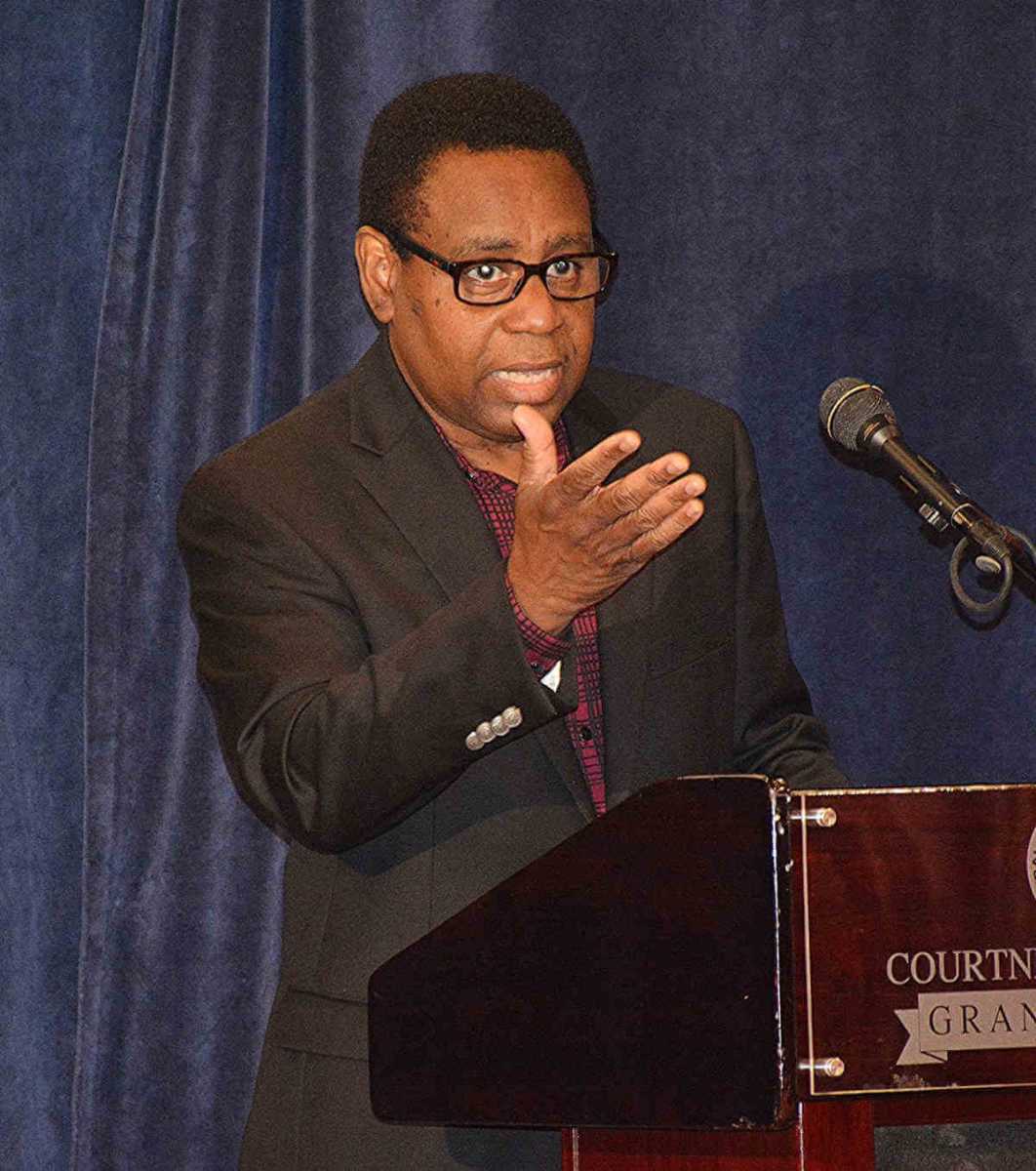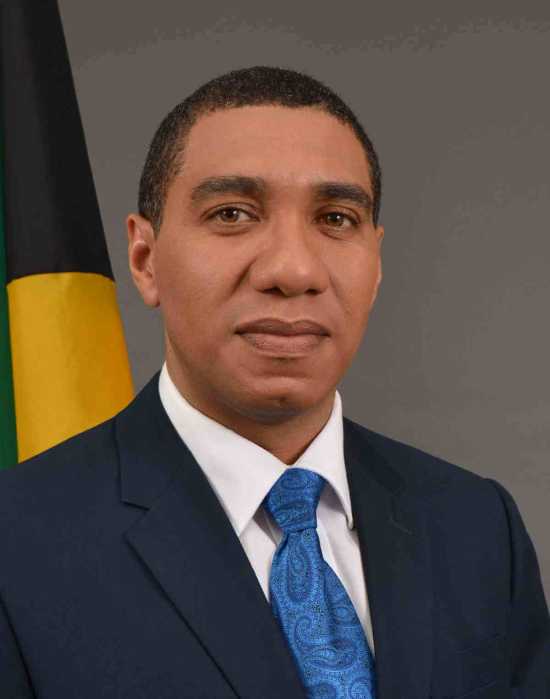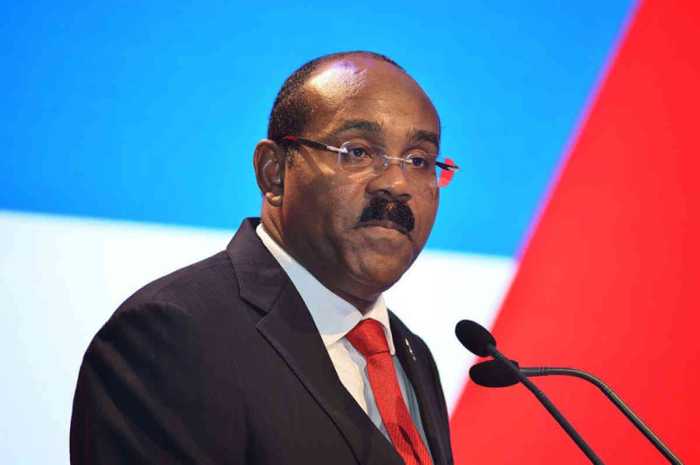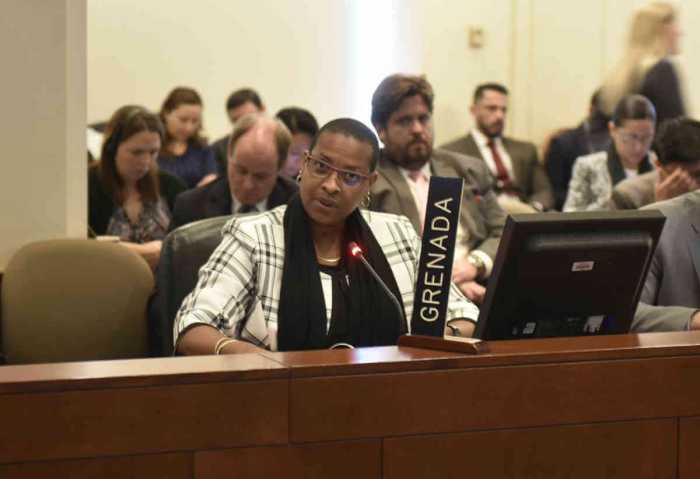ANTUGUA
Antigua and Barbuda will hold a “scaled-down” carnival lasting seven days this year and the island will also allow unvaccinated nationals to return home under certain conditions.
A government statement said that Minister of Creative Industries, Michael Browne has assured that there will be no super-spreader events during the festival that is held annually from the end of July to the first Tuesday in August.
He anticipates that T-shirt mas and city blocks filled with cultural exhibits of one sort or another will mark carnival 2022, marking the second consecutive year that the island had not been able to put on its full array of activities due to the COVID-19 pandemic that has killed 135 people and infected 7,395 others since March 2020.
He said Cabinet agreed to assist calypsonians, soca artistes and others who require the need of a studio, in order to advance their cultural art form.
Browne said regarding the discussions on relaxing COVID-19 restrictions as they pertain to a several nationals wanting to return home but are not vaccinated, the deputy chief medical officer and the chief health inspector were invited to address the ministers and and “following intense discussions, with safety and security as underlying concerns, the Cabinet agreed to allow unvaccinated nationals to return to their homeland.”
But it said they would only be allowed to to do so after taking either a PCR test or a rapid antigen test, within four days of departure to Antigua and that on arrival the person will agree to spend seven or 10 days in quarantine with a tracking bracelet and will take another test prior to joining family members and friends.
BARBADOS
Barbados will be using new look banknotes made of polymer by the end of the year.
Central Bank of Barbados Governor, Cleviston Haynes in making the announcement said: “The bank remains committed to reducing the use of cash and ensuring that Barbadians have a range of payment options available to them.
“At the same time, however, we recognize that cash remains popular. There are still many Barbadians for whom cash is their principal means of payment and others who continue to use it in combination with other options.”
He said polymer banknotes have become increasingly common in recent years as banknotes manufacturers have found ways to incorporate novel and varied security features in them.
The governor confirmed that the functionality was the rational for change.
Haynes also revealed that the banknotes will have a new design, but some familiar elements would not change.
CARIBBEAN
The Caribbean Community (CARICOM) has called for a policy to deal with rising food prices globally, as they joined their Latin American counterparts in discussing the agri-food sector, which is being regarded as a key to move beyond the crisis that has engulfed the world.
Guyana’s Minister of Agriculture, Zulfikar Mustapha told the 37th Regional Conference for Latin America and the Caribbean of the Food and Agriculture Organization (FAO) that food prices had become a “very, very important issue” around the world.
“What is taking place, we have had the COVID-19 pandemic for two years, we have had the war in Russia and Ukraine and we have had other issues that exacerbate the situation with food prices around the world,” Mustapha told the recent conference, which was being attended by ministers and delegations both virtually and in person.
Mustapha, who was elected vice-chair of the five-day conference, said: “We as a Caribbean, especially in CARICOM, we are looking at proposals and ways how to bring down the food prices and reduce our import bill.”
GUYANA
The United Arab Emirates (UAE) has expressed an interest in helping Guyana to boost its agriculture production,.
This move, Guyana President Dr. Irfaan Ali said would be in keeping with government’s vision to make Guyana the food basket of the region and build a framework that would ensure Guyana has the greatest level of productivity.
Dr. Ali, who recently returned from the UAE said 90 percent of the conversation with the leadership of the UAE and private sector, was not on oil and gas, but most of the conversation was on food security and agriculture diversification and production.
Ali was in the UAE to attend the Caribbean Investment Forum (CIF 2022) and the Global Business Forum LATAM, where agriculture was the main focus.
Ali said Guyana has all the competitive advantages, noting that the only task now is catalyzing it into action so that the country and its people could benefit.
Dr. Ali told a ceremony to launch the black belly sheep program in Region 5 (Mahica-Berbice that the revenue from oil and gas must be used to build the country’s agricultural system, infrastructure and technology.
HAITI
The United Nations Development Program (UNDP) said in a new report that Haiti still to reach two percent of its population of its vaccination drive against the Covid-19.
It said that indicates only a tiny portion of Covid-19 vaccines have been administered in developing countries.
Haiti has recorded 827 deaths and 30, 511 infections over the past two years as a result of the virus.
In the report, the UNDP said the situation has widened the gap between rich and poor, recalling that in September 2021, the World Health Organization (WHO) set an ambitious global target, calling for 70 percent of the global population to be vaccinated by mid-2022.
It said at that point over three percent of people in low-income countries had been vaccinated with at least one dose, compared to 60.18 percent in high-income countries.
JAMAICA
Jamaica Prime Minister Andrew Holness told Prince William and Kate during their visit that the country intends to become fully independent in an unexpected announcement that comes as other Caribbean countries continues cutting ties with the monarchy.
Holness also noted there were “unresolved” issues as he greeted Prince William and Kate in front of the media.
The former British colony would become the second Caribbean island to sever relations with Queen Elizabeth II in recent years.
The announcement surprised many on the island of nearly three million people, which unleashed a fury of text messages and phone calls.
The Royal couple — the Duke and Duchess of Cambridge — arrived in Jamaica a week ago as part of a week-long tour of Central America and the Caribbean organized at the behest of the Queen that coincides with the 70th anniversary of her coronation.
Britain ruled Jamaica for more than 300 years, forcing hundreds of African slaves to toil the land under brutal conditions.
Jamaica gained independence on August 6, 1962 but remained within the British commonwealth.
Last November, Barbados became a republic and inaugurated Dame Sandra Mason as its president.
ST. LUCIA
St. Lucia has signaled its intention to become the fifth Caribbean Community (CARICOM) to become a full-fledged member of the Trinidad and Tobago-based Caribbean Court of Justice, (CCJ), which was established in 2001 to replace the London-based Privy Council as the region’s final court.
Acting Governor General, Cyril Errol Charles, delivering the traditional throne speech at the start of the new parliamentary term last week, told legislators that the government is committed to addressing “Our destiny as an independent nation, both tacitly and tangibly.”
This year, he said, St. Lucia will take steps toward the accension to the appellate jurisdiction of the Caribbean Court of Justice, which “we are expected to become the fifth CARICOM member state to replace the Privy Council with the CCJ.”
All of the CARICOM countries are signatories to the original jurisdiction of the CCJ, which also serves as an international tribunal interpreting the Revised Treaty of Chaguaramas which governs the regional integration movement, however, only Barbados, Guyana, Belize and Dominica have signed on to the court’s appellate jurisdiction.
— Compiled by Azad Ali


























